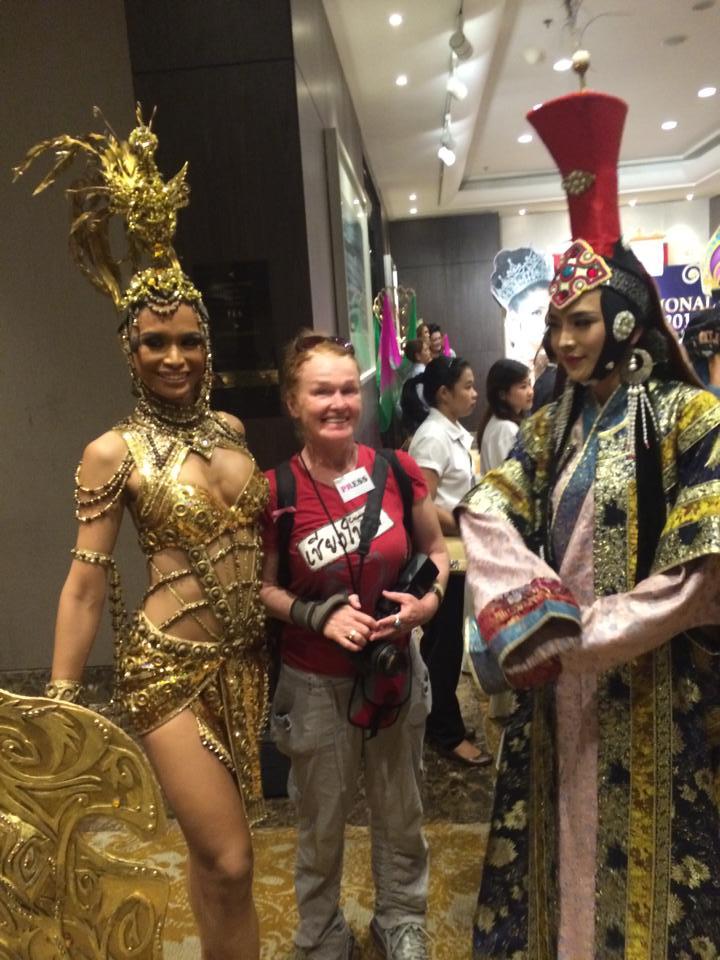June 5, 2019
Class of 2019: Social work grad's life of adventure brought her to the helping profession

When Cynthia Picot (née Adams) was 17 years old, she saw David Bowie’s 1974 Diamond Dogs album and it felt like a postcard from another world. Growing up in Medicine Hat, she never quite felt like she quite fit in. That album hinted there was a much more interesting world waiting for her.
So she took to the highways, travelling across North America like a latter-day Kerouac before heading to Berlin, which had been the home to so many of her idols: Iggy Pop, Lou Reed, Nico, George Grotz, Max Beckman, and of course, David Bowie.
Berlin in the late ‘70s was a cultural legend. The Geniale Dilletanten (Brilliant Dilettantes) music and filmmaking scene was on the rise and the city was a magnet for artists and musicians. While DJing at Der Jungle, Picot actually met Bowie, and along the road befriended Iggy Pop, Nico, Nick Cave and avant garde icon and filmmaker Wim Wenders.
While DJing at Mink, she met Olivier Picot, whom she married. Together they opened Gift, a music store, fashion and performance art space that she describes as “the daytime meeting place” for the dilettante community. During this time, word spread of Picot’s skill as a self-taught fashion designer and, much to her surprise, she was soon invited to show her work around the world.
Before too long, the amphetamine pace of Berlin proved too much, and Picot moved on, heading to San Francisco and then Israel.

Picot in Berlin during the '80s with Einstürzende Neubauten lead singer Blixa Bargeld.
Cynthia Picot
Israel and the West Bank
Continuing her wandering ways, Picot bought a camera and proceeded to teach herself videojournalism with the idea of capturing the conflict she was witnessing. She was sponsored by the UNDP (United National Development Fund) and taught journalism to Palestinian students at An Najah University in Nablus.
While living in Nablus, she befriended many of the Palestinian photojournalists she met. After a colleague was shot and killed by the Israeli army, she was motivated to make a film called Shots That Bind, which followed six Palestinian photojournalists for a year. When her visa expired she relocated to Taiwan, where she taught English and edited her film.
Covering war and natural disaster across Asia and the Middle East
Shots That Bind won several film festival cinematography awards. But self-editing a feature film was exhausting, and Picot turned her interest toward still photography. Over the next few years she worked as a freelance photographer for several NGOs and the UN, covering disasters and conflict in Sri Lanka, Iraq, Jordan, Indonesia, Afghanistan, Palestine, Syria, Lebanon, and more.
The downside of being a war and disaster photographer (including the 2004 tsunami) is the subject matter. After a decade, Picot developed undiagnosed PTSD. Perhaps as a result, she eased out of that role to new subject matter.
While living in southeast Asia, she became interested in the vibrant trans culture. Curious as to how they survived on the fringes of society, she began hanging out at cabarets and photographing the community. Ten years of documenting trans women from eight South East Asian countries have resulted in Trans Life in Asia: A Photographer’s Journey, a series of exhibitions and a soon-to-be-published book.

Picot with friends backstage at Miss International Queen — the beauty pageant for transgender women.
Cynthia Picot
Reflections on being a mature-mature student
For a variety of reasons, Picot eventually came back to Alberta, and at the age of 55, pursued a new goal — a degree in social work at the University of Calgary.
“I think anybody at any age can go back to school. It gives you this feeling of accomplishment, you know? It's just really great and being around young people is invigorating and for them it's also inspiring. Because I'm in my 50s, people in their 30s and 40s actually came up to me and said, you know, because I was there that they felt more comfortable, and they felt more empowered as well."
Her goal is to one day return to places she’s lived and use her degree to help people help themselves.
“Coming back to Canada was hard,” she admits. “I had intense culture shock, so I kept my head down. Having witnessed and documented atrocities — and having experienced PTSD myself — I feel I have something to give, especially because in those places, there often isn’t a lot of help.”









































































